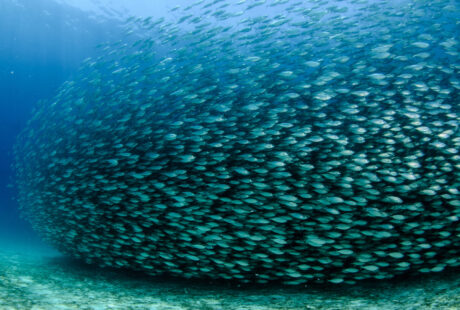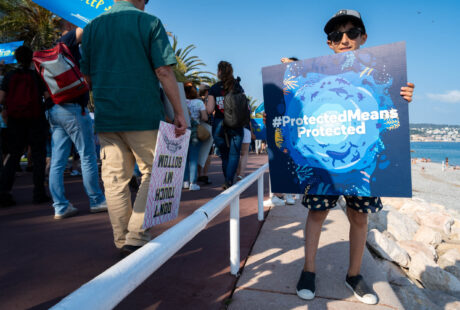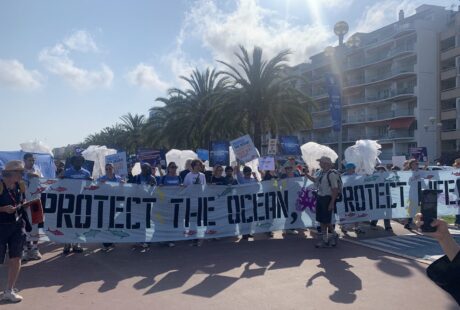Following months of intense negotiations, on 9 November representatives of three European Union institutions – Parliament, Commission and Council – agreed a deal on the EU Nature Restoration Law. The law – known as the NRL – is the first time in 20 years the EU will set binding rules to restore nature, including Europe’s marine ecosystems and the dearth of precious biodiversity they harbour.
Having overcome multiple hurdles, from populist wheeling and dealing of right and far-right politicians eager to secure another term in office, to furious outbursts from the all-powerful farming lobby in an effort to protect profit margins, the NRL survived multiple rounds of contentious votes in the Parliament – although not entirely unscathed. The original draft NRL put forward by the Commission was significantly weakened by right wing forces in both the Parliament and Council, leaving hopes of making nature restoration a reality hanging in the balance.
Thanks to the determination of some key negotiators and the hard work of ocean advocates from across the EU, the NRL deal that has been reached will largely have a positive impact on European seas, and specifically efforts to protect it from fishing – the main cause of marine biodiversity loss. As part of a multiannual project, Seas At Risk has been campaigning for crucial wording to be included in the NRL that would make restoration and fishing rules work in harmony. The deal struck by negotiators means that EU countries will have to jointly solve problems that occur when the fishing practices of one country could negatively impact the restoration efforts of another – a process known as the Joint Recommendation procedure. This procedure was already included in EU fishing rules on a voluntary basis but was rarely applied, contributing to harmful destructive fishing continuing in marine habitats that have been singled out as needing protection: in the words of the European Environment Agency, “commercial fisheries interests were favoured over nature conservation requirements”. With the new NRL in place, Member States are required to find joint solutions when there is a conflict between marine restoration and harmful fishing like bottom trawling and dredging – a huge win for Europe’s seas.
Other must-know aspects of the NRL are:
- The good: EU countries must put in place restoration measures in 20% of Europe’s seas by 2030.
- The bad: the obligation on Member States to actually prevent deterioration of nature, both at sea and on land, has been severely undermined, making it difficult to put into practice.
- The ugly: the deal now includes loopholes allowing EU countries to evade nature restoration measures that could impact economic activities of “overriding public interest”. In recent years, many activities that could harm the environment have been considered as being in the public interest, such as the development of vast wind farms in marine protected areas, setting a dangerous precedent for things to come.
The NRL isn’t out of the woods just yet: later this month the deal will be voted on by the Parliament’s Environment, Public Health and Food Safety (ENVI) committee, before facing the final seal of approval in a vote by all Members of the European Parliament, perhaps as early as December. It must also be given the greenlight by all EU Member States. With Christmas – and the EU elections – just around the corner, we hope that our elected representatives choose a healthy planet, rather than gifting future generations a lump of coal.
Find out more about our work on marine protected areas and nature restoration here.
Posted on: 15 November 2023



